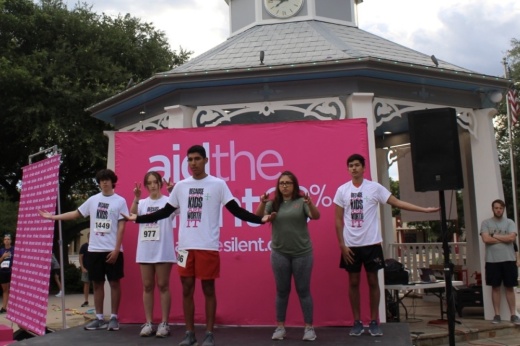San Antonio City Council unanimously voted Aug. 18 to allocate $17.5 million in federally funded grants to help support local nonprofits and social services; older adults; and youth disproportionately impacted by the COVID-19 pandemic.
City officials said the money, which comes from the city’s $326.9 million total allocation of American Rescue Plan Act funds, will enable nonprofit and social service partners to build long-term resiliency and continue critical efforts to support residents recovering from the pandemic.
“These grants will help our local nonprofits provide services to the residents who need it most, while also building upon our mission of making San Antonio a more resilient community,” City Manager Erik Walsh said in a statement.
The council’s vote provides a spending framework of the ARPA funds, including $2.5 million for social services and economic security for residents.
Another $5 million will be invested to support initiatives for older adults that will address increased social isolation, decreased food and resource insecurity, city officials said.
Lastly, $10 million is focused on youth support services to increase youth involvement, education and career opportunities, and access to school enrichment services, city officials said.
The latter funds, city officials said, will be used to aid the most vulnerable youth, including those who are at risk of gang involvement, disconnected from existing education and career support programs, and homeless youth.
“COVID-19 impacted our world like nothing in our lifetime. Our lives at home, at work and in our communities were disrupted. All of this had adverse effects on service providers,” the city's Human Services Director Melody Woosley said.
Beginning Sept. 2, eligible nonprofit, faith-based and public entity organizations and funded agencies that have been operational a minimum of two years may answer a competitive request for proposals for the grant monies. The same applicants must also prove that they and/or their clients have been disproportionately affected by the pandemic, city officials said.
Representatives for three local nonprofits said the funds are desperately needed to help support their organizations and respective missions.
Emma Faye Rudkin, founder and executive director of Aid the Silent, addressed the council. Aid the Silent connects hard-of-hearing and deaf children and teenagers with resources and tools that help to enhance their lives.
Rudkin said some public health requirements during the height of the pandemic inadvertently hurt deaf people, making it more challenging for them to understand people who wore facial coverings.
Rudkin said her organization was challenged by pandemic-spurred closures but strived to find other ways to serve their clients.
“It is irreversible what happened to deaf kids during the pandemic,” Rudkin said.
Steven Silver, grant writer for Children's Rehabilitation Institute Teleton USA, said CRIT offers comprehensive rehabilitation services for children with neurological, muscular and skeletal disabilities. Silver also said CRIT has focused on serving underinsured and uninsured families during the pandemic.
“We need help with mandated and underfunded costs,” Silver said, adding that such costs for CRIT are estimated at more than $3 million yearly.
Luke Blankenship, development/communications director for Pride Center San Antonio, listed a number of statistics that skewed negatively when it comes to local LGBTQ community members and their efforts to improve their quality of life.
“The Pride Center is here to combat these statistics,” Blankenship said.
Many council members voiced appreciation for the mere availability of such federal funds to help the city support local nonprofits and delegate agencies, especially those charged with aiding the most vulnerable communities during the pandemic.
“This money is a blessing, and it comes at a time when it matters the most,” District 8 Council Member Manny Pelaez said, adding that the council will have to manage public expectations about organizations applying for and landing a grant.
“Not everybody will get this grant,” Pelaez said.
District 10 Council Member Clayton Perry said he wished city staff would make available more federal COVID-19 relief money for local small businesses.
“We did move some funding to small businesses, but, in my opinion, not enough,” Perry said, adding that the city must clarify its processes for measuring how well grant recipients spend their funds.
According to city officials, the request for proposal will close Oct. 3. Proposals will be reviewed and scored by key city staffers, including officials from the city’s human services department and the Metropolitan Health District as well as city board, commission and community members between Oct. 4-20.
The council is expected to approve recommended grant recipients in November. Local officials said grant awards will be provided in a minimum amount of $100,000.





